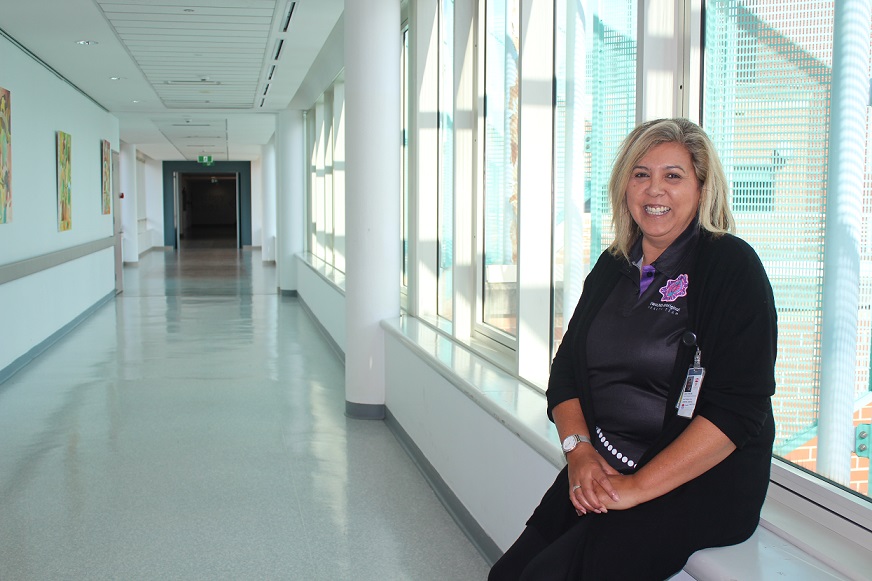
All Aboriginal people should be able to complete their journey in a culturally appropriate way, at peace with their family and ancestors and with the best medical and cultural care, says Cheryl Porter.
And that’s exactly what she has pioneered as the first designated NSW Aboriginal health worker with a palliative care role that respects the indigenous culture.
Her role at the South Western Sydney Local Health District has been so successful other local health districts are following suit.
“I saw the gap in palliative care for indigenous people and saw the job advertised; I just had to apply,” Ms Porter, pictured above, said.
“It’s important to know that no two Aboriginal people are the same.
“Broadly though, the whole concept of palliative care is not something we like to talk about; that’s sorry business.
“My role is about providing support in palliative and end of life care that is person centred in meeting the cultural, social, emotional and spiritual needs of Aboriginal people and their family.
“I love what I do and the people I meet – I feel so privileged to be part of this journey.’’
Smoking ceremonies now occur in palliative care as a result of Ms Porter liaising with patients, their families and staff.
She said the ceremony helps the spirit depart from this world and into the next “go back to country”.
“It is important to acknowledge the history and sentiments of indigenous people coming to hospital,’’ Ms Porter said.
“I do a lot of work with the patient and their family to make them feel safe.”
Before this South West Sydney role, Ms Porter, who has a nursing background, transitioned to Aboriginal health, covering drug and alcohol and mental health in the state’s most rural and remote communities.
Seeing her great grandma in hospital inspired her to pursue a career in nursing.
District area palliative care manager Janeane Harlum said the District put forward the concept of a palliative care specific Aboriginal health worker.
“Now that other local health districts have received funds to implement the same role, they are all reaching out asking for our advice and assistance,” she said.
“What I love about this role is Cheryl is embedded in palliative care and she also works with the hospital’s Aboriginal liaison officers, helping build the bridge with the chronic care team too.”
